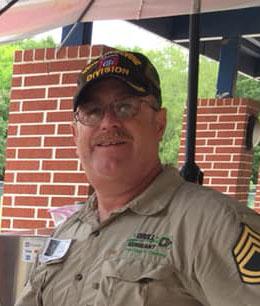Things I have learned from 'Star Trek'
Opinion column: The opinions expressed by the author do not necessarily refl ect the opinions and viewpoints of The Examiner.
I have been wanting to write about this for a long while. I can remember as a young child, maybe 6 or 7, “playing Star Trek” with my friends at recess. I was always Captain Kirk and in our make-believe starship some sort of conflict always flared up with the Klingons. Myself and my crew fought many good battles out there in Quadrant 9 – otherwise known as the back corner of the playground. My Mom even made me an “official” Star Trek uniform shirt with the correct rank on the sleeves as a Starship Captain. I’m sure that my Mom still has that shirt somewhere, but I digress. I’ve been a fan of Star Trek for almost 50 years and here are some of the things I have learned.
First – “Do No Harm”. This is spelled out officially in the “Prime Directive” where Starfleet members are prohibited from interfering with the normal development of any society. The idea here is to explore, but not exploit. The show started in 1966 and this notion most likely came about as an ideological challenge to the United States’ involvement in Vietnam. In real life we often struggle with staying out of other people’s business. Are we helping or enabling our friends, brothers, or sisters?
Second – “Live Long And Prosper.” First Officer Spock used the phrase many times as a peaceful greeting when meeting a fellow Vulcan. In my research for this article, I found out that the phrase and its hand salute is an abbreviated version of a traditional Jewish religious blessing. I have always taken it as just a great way to be. What more could we want than to have a long healthy life and to be blessed with all that has been given to us?
Third – “Teamwork Makes The Dream Work.” The crew of the Enterprise was way ahead of its time in regard to diversity. The main characters on the bridge included a woman of color, a man of Japanese lineage, a Russian, a Vulcan, and an Anglo man from Iowa. Nowadays combination of backgrounds seems pretty mainstream, but in the 1960s it was the rarest of the rare. The thing I like best about these characters is that I never saw them as “foreigners”; to me they were just people doing their jobs and getting along as best they could. It wasn’t their diversity that made them a great success, it was the fact that they were very, very effective at working together towards a common goal – oftentimes their very survival.
Fourth – “The Needs Of The Many Outweigh The Needs Of The Few, Or The One”. I have kept this idea, this tenet, in my back pocket since I was on that playground some 50 years ago. You don’t have to be a religious scholar to recognize the symbolism here. Sacrificing one’s self so that others may live goes straight to the heart. It’s a deep philosophical statement and its logic cuts like a razor. I often wonder if I could actually carry it out. I would like to think that if I had to, I could – give myself up so that others could live.
The utopian world where Star Trek dwells is as imperfect as the one in which we live. We have class struggles and racial issues, competing ideas about government and religion just like they did, but deep inside we all want things to be better. It’s been said that “change is the essential process of all existence” Can we learn from our mistakes and grow as human beings? Stay tuned for the next episode.
Alan Shoalmire is a resident in Grimes County and the owner of Grill Sergeant Hotdogs and submits a column to the Navasota Examiner every other week.

